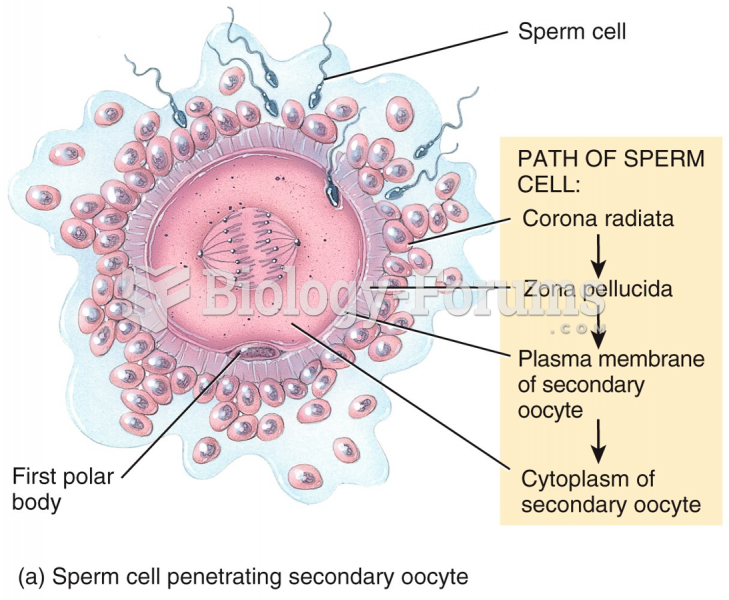This topic contains a solution. Click here to go to the answer
|
|
|
Did you know?
Amoebae are the simplest type of protozoans, and are characterized by a feeding and dividing trophozoite stage that moves by temporary extensions called pseudopodia or false feet.
Did you know?
Approximately 25% of all reported medication errors result from some kind of name confusion.
Did you know?
On average, the stomach produces 2 L of hydrochloric acid per day.
Did you know?
Signs and symptoms of a drug overdose include losing consciousness, fever or sweating, breathing problems, abnormal pulse, and changes in skin color.
Did you know?
More than 34,000 trademarked medication names and more than 10,000 generic medication names are in use in the United States.







